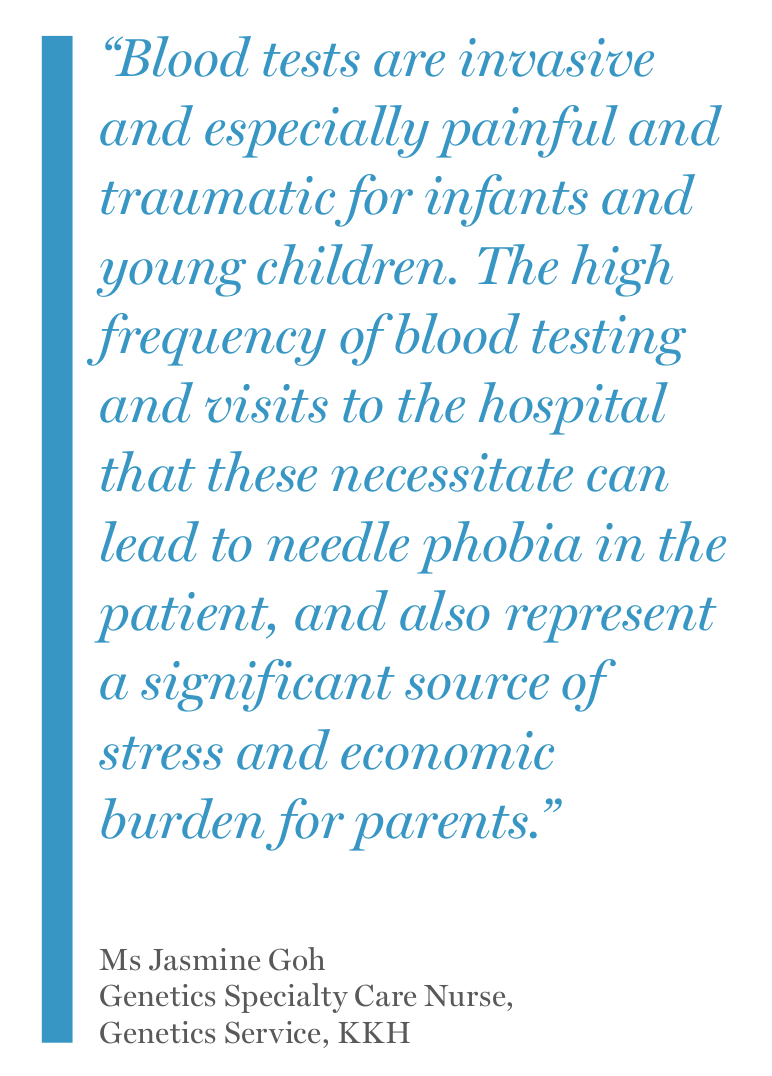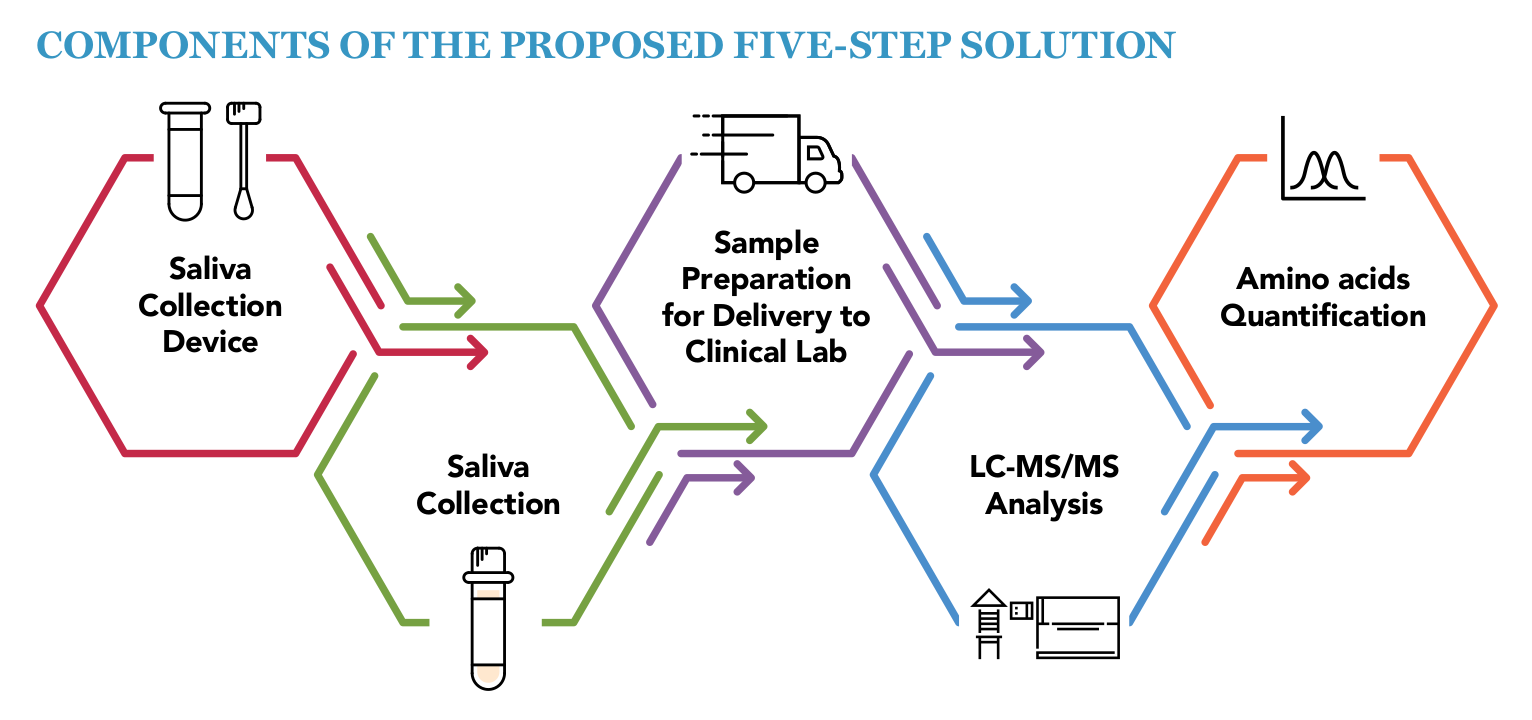National Dental Centre Singapore (NDCS) and KKH scientists are helping patients with Maple Syrup Urine Disease to better manage their health at home.
National Dental Centre Singapore (NDCS) and KKH scientists are developing a painless, non-invasive and convenient solution to save patients with Maple Syrup Urine Disease (MSUD) and Phenylketonuria (PKU) from a lifetime of blood tests, and enable them to better manage their health at home.
“Metabolic disorders MSUD and PKU are caused by enzyme deficiencies, which lead to elevated levels of phenylalanine and branched-chain amino acids (BCAAs) in the blood and tissues. While these amino acids are essential for the body’s normal growth and metabolism, they can cause neurological and psychomotor abnormalities if allowed to accumulate unchecked in the body,” says co-investigator Dr Tan Ee Shien, Senior Consultant, Genetics Service, KKH, who is also Director of the KKH Newborn Screening Programme.
People with MSUD and PKU require lifelong treatment to monitor and maintain the amino acids at acceptable levels in the body. This involves dietary restrictions coupled with frequent and regular blood testing. Excluding episodes of intercurrent disease or acute metabolic decompensation, a patient diagnosed with MSUD or PKU at birth will undergo about 950 blood tests throughout their lifetime.''

“Blood tests are invasive and especially painful and traumatic for infants and young children. The high frequency of blood testing and visits to the hospital that these necessitate can lead to needle phobia in the patient, and also represent a significant source of stress and economic burden for parents,” says Ms Jasmine Goh, Genetics Specialty Care Nurse, Genetics Service, KKH.
These factors can lead to non-adherence for regular blood testing, which may result in serious complications due to poor control of the patient’s phenylalanine or BCAA levels.
To overcome these barriers and encourage patients to adhere to regular amino acid monitoring, the team is developing a five-step solution. Patients will be provided saliva collection kits to collect saliva samples at home. The samples are then delivered to the clinical laboratory to undergo LC MS/MS (liquid chromatography coupled with tandem mass spectrometry) analysis and amino acid quantification.

“Saliva contains phenylalanine and BCAAs – albeit at lower concentrations than blood – making it a potential diagnostic fluid. Importantly, saliva can be self-collected painlessly, non-invasively and conveniently, making it a stress-free experience for patients and caregivers,” says Dr Ho Meng Fatt, Principal Investigator, Department of Research, NDCS.
The team is currently looking into the development of a method to stabilise amino acids in saliva for delivery to the clinical laboratory.
“The end result will be a new solution for the therapeutic monitoring of amino acids in PKU and MSUD patients that is non-invasive, painless, convenient, and more cost effective than the current method of testing. The new solution is applicable not only in our local healthcare setting, but across all other healthcare institutions globally,” says Dr Tan.
“In the longer term, this will pave the way for the development of non-invasive diagnostic and therapeutic monitoring tests in the area of lifelong medical conditions," adds co-investigator Dr James Lim, Chief Scientific Officer, Department of Pathology and Laboratory Medicine, KKH.
Innovating for the future To improve the lives and health of future generations, clinician researchers and scientists at KK Women’s and Children’s Hospital (KKH) are pioneering innovative ways to advance women’s and children’s health outcomes. Supported by $7 million in centre grants from the National Medical Research Council, researchers from KKH, in collaboration with National Dental Centre Singapore, SingHealth Polyclinics and National Healthcare Group Polyclinics, are exploring key areas which impact women’s and children’s health and wellbeing, including auto-immunology, childbirth and persistent pain, genetics, metabolic syndromes and endometriosis.
Key research areas: |

